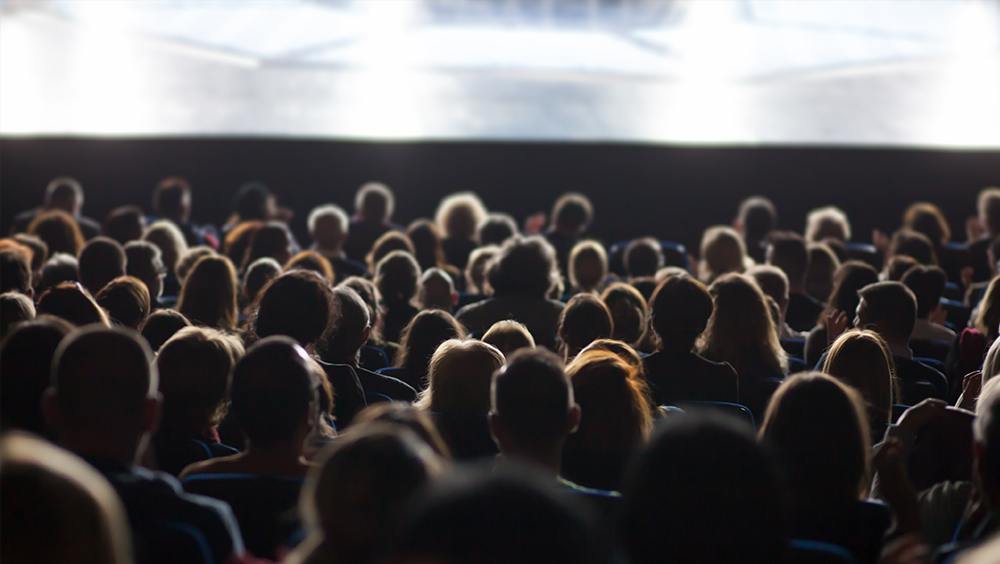Is It Illegal to Yell ‘Fire’ in a Crowded Theater?

You can't yell "fire" in a crowded theater … or can you?
It turns out that one of the most common sayings about the limits on free speech protected by the First Amendment is often misquoted. This misconception is missing some key nuances about what the First Amendment does and does not protect.
In this article, learn what the real quote is, where it came from, and how history has garbled the original meaning of the saying.
Is it illegal to yell 'fire' in a crowded theater?
No, yelling "fire" in a crowded theater is not necessarily illegal, but it could be, depending on the circumstances.
The First Amendment does not protect the right to falsely yell "fire" in a crowded theater to cause a panic. Depending on the circumstances, you could be charged with disorderly conduct. If someone is injured, you could be liable.
The First Amendment does protect your right to yell "fire" if there truly is one — or you truly believe there is — and you are trying to warn people of the danger so that they can get to safety.
And there are plenty of other instances in which uttering "fire" in a busy place could be perfectly OK under the First Amendment. Adele singing "Set Fire to the Rain" during a concert. Whispering "That movie looks fire" to your friend when you see an entertaining trailer. Even if someone disagrees with your assessment of the movie preview or does not like Adele’s music, these are all protected free expression. There is a very high bar to limiting free speech – much higher than simply disliking what someone says.
Where did the saying about yelling 'fire' in a crowded theater come from?
In 1919, the U.S. Supreme Court heard a case (Schenck v. U.S.) in which it upheld a conviction for distributing anti-draft flyers in violation of the Espionage Act. The court said this was not free speech, though its ruling has since been largely overturned in favor of protecting more speech.
In the court's decision, Justice Oliver Wendell Holmes wrote, "The most stringent protection of free speech would not protect a man in falsely shouting 'fire' in a theatre and causing a panic."
This was not just a made-up example.
Fire is, of course, dangerous, and was particularly feared at a time before fire codes required safety measures like fire alarms, accessible and clearly labeled fire exits, limits on the number of people allowed in buildings, and water sprinkler systems.
In 1903, more than 600 people died in a fire in a Chicago theater.
In 1911, 26 people in Michigan died trying to escape a theater after someone saw a film projector spark and yelled "fire," though there did not turn out to be a fire.
That incident is one reason the fire code now requires exit doors to open outward, instead of inward, to help in a mass exit.
From the 1870s to the time of the 1919 ruling, nearly 30 incidents of people falsely yelling "fire" in halls, theaters and churches across the U.S. occurred. One happened just blocks from Justice Holmes' house. Many of these incidents created mass panics, and seven were deadly, killing more than 150 people among them.
In 1913, an unknown perpetrator intentionally shouted "fire" when there wasn't one at a crowded union Christmas party in Michigan, with 73 people, mostly children, killed in the ensuing panic. The incident was memorialized in a folk song by Woody Guthrie.
The idea of a villain falsely yelling "fire" became common in the literature and culture of the time — and then in law. A lawyer in another case being heard by the Supreme Court during the same term Holmes mentioned it in his 1919 opinion used the example in his own argument to the court.
Today, the saying remains among the most cited First Amendment concepts. Some variation of it has appeared in nearly 300 court opinions.
What is the real saying about yelling 'fire' in a crowded theater?
The saying about yelling "fire" in a crowded theater is a commonly cited but misunderstood piece of First Amendment theory.
The quote: "The most stringent protection of free speech would not protect a man in falsely shouting 'fire' in a theatre and causing a panic."
The misquote: "You can't yell 'fire' in a crowded theater."
Today in popular culture, the saying, unlike the actual quote, says the theater is crowded but doesn't explicitly note the outcome being panic.
It also often omits the key word "falsely," so the phrase loses the original quote's indication of the speaker's intent and the context.
How is the phrase about yelling 'fire' in a crowded theater often used today?
The comment by Holmes about yelling "fire" in a theater was a descriptive image in his ruling but did not establish any sort of test or precedent.
The quote has been used, though, to argue that speech perceived as false or harmful is not protected by the First Amendment. For example, it has been used to advocate for government regulation of social media, for punishment of misinformation and disinformation, and for government consequences for sharing false or erroneous health information.
But as this article has shown, there are many circumstances when saying "fire" is not at all harmful and is totally protected.
On top of that, the First Amendment protects a great deal of false or potentially harmful speech, including, in many cases, lying.
RELATED: Is lying protected by the First Amendment?
Similarly, simply yelling "fire" in a theater is not automatically unprotected speech. To determine whether the action is protected or not requires knowing a little more about the context, including the intent of the person yelling and the actual or imminently likely results.
What is the bar for limiting speech under the First Amendment, if it is not illegal to yell 'fire' in a crowded theater?
At one time, speech presenting a "clear and present danger" was enough to justify the government limiting it, as the court said in the 1919 case where the phrase first gained legal infamy.
Today, however, the Supreme Court uses a much more specific test to limit potentially dangerous speech: To be limited, the speech must incite imminent lawless action.
Similarly, just because someone believes speech is false or feels that it is offensive or harmful is not enough to limit the speech. Courts look at the speaker's intent, the actual impact of the speech, and whether it fits into a specifically defined type of speech that is unprotected to determine whether it is so harmful that it can be limited or punished.
For example, defamation is not protected as free speech. But it is not defamation to say something mean or even untrue about someone. To be defamation, a statement must be false and cause demonstrable damage to someone, and the speaker's error must have been the result of negligence or – if they were talking about a public figure or public official – made with the knowledge that it was false or with reckless disregard for its truth or falsity.
In other words, to lose free speech protection, the speaker must knowingly or recklessly cause specific harm with false words.
This report is compiled based on previously published Freedom Forum content and with the input of Freedom Forum experts. The editor is Karen Hansen. Email.
Ink Expression: Tattoos and Free Speech
New Laws on Religion in Schools Face First Amendment Tests
Related Content

